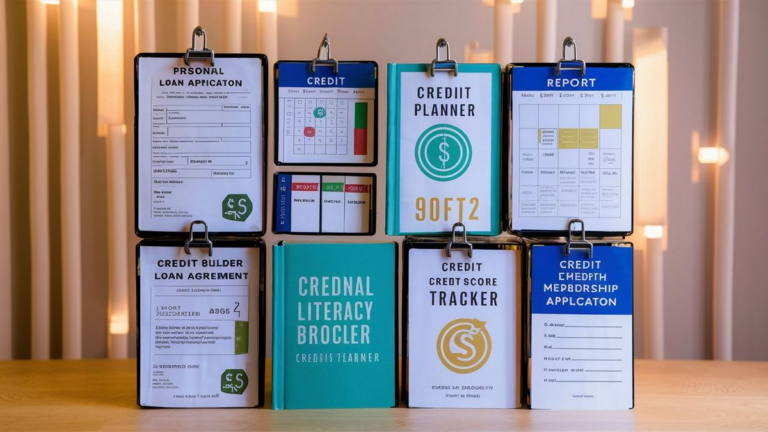Building credit is essential for financial stability and access to various opportunities such as loans, mortgages, and better interest rates. While credit cards are a common tool for building credit, they’re not the only option available. If you prefer to avoid credit cards or simply don’t qualify for one, there are alternative methods to establish and improve your creditworthiness.
Become an Authorized User
One effective strategy to build credit without a credit card is by becoming an authorized user on someone else’s credit card account. This allows you to piggyback off their credit history and benefit from their responsible credit management. However, ensure that the primary account holder has a positive credit history and makes timely payments.
Take Out a Credit-Builder Loan
Credit-builder loans are specifically designed to help individuals establish or improve their credit scores. With these loans, the lender holds the loan amount in a savings account or certificate of deposit (CD) while you make fixed monthly payments. Once you’ve paid off the loan, you receive the funds along with a boost to your credit score.
Apply for a Secured Loan
Similar to credit-builder loans, secured loans require collateral, such as a savings account, car, or home, to secure the loan. By making timely payments on a secured loan, you demonstrate responsible credit behavior, which can positively impact your credit score over time.
Pay Your Bills on Time
Consistently paying your bills, such as rent, utilities, and student loans, on time can help build a positive credit history. While these payments may not directly impact your credit score initially, some credit bureaus incorporate alternative data into credit reports, which may include rent and utility payments.
Utilize Rent Reporting Services
Rent reporting services allow you to report your monthly rent payments to credit bureaus, helping you build credit through on-time rent payments. Some services may charge a fee, but the potential credit score improvement may outweigh the cost.
Apply for a Credit-Builder Credit Card
Credit-builder credit cards are specifically designed for individuals with limited or no credit history. These cards typically require a security deposit, which acts as your credit limit. By using the card responsibly and making timely payments, you can gradually build your credit profile.
Monitor Your Credit Report Regularly
Regardless of the methods you choose to build credit, it’s crucial to monitor your credit report regularly. Check for inaccuracies or fraudulent activity that could negatively impact your credit score. You’re entitled to a free credit report from each of the three major credit bureaus annually.
Avoid Opening Too Many Accounts at Once
While diversifying your credit profile can be beneficial, opening multiple accounts within a short period may signal financial instability to lenders. Instead, focus on establishing a few accounts and managing them responsibly to gradually build your credit.
Building credit without a credit card is possible through various alternative methods such as becoming an authorized user, taking out credit-builder loans, paying bills on time, and monitoring your credit report regularly. By adopting responsible financial habits and utilizing available resources, you can establish a solid credit foundation for future financial endeavors.
Frequently Asked Questions
Here are some common questions related to building credit without using a credit card:
| Question | Answer |
|---|---|
| Can I build credit without a credit card? | Yes, there are several methods such as becoming an authorized user, taking out credit-builder loans, and utilizing rent reporting services. |
| How long does it take to build credit without a credit card? | The time it takes to build credit varies depending on factors like your current credit history and the methods you use. Generally, it may take several months to a few years to establish a solid credit profile. |
| Are there any risks involved in becoming an authorized user on someone else’s credit card? | While becoming an authorized user can help build credit, there are risks if the primary account holder defaults on payments or misuses the credit card. Ensure you trust the primary account holder and communicate clearly about expectations. |
| Can paying bills on time really improve my credit score? | Yes, consistent and timely payments for bills such as rent, utilities, and student loans can contribute positively to your credit history, especially if these payments are reported to credit bureaus. |
| How often should I monitor my credit report? | It’s advisable to monitor your credit report regularly, ideally at least once a year from each of the three major credit bureaus. Additionally, you may want to check more frequently if you’re actively working on building or repairing your credit. |
Building Credit Through Alternative Means
Aside from traditional methods like credit cards and loans, there are other ways to build credit:
- Peer-to-Peer Lending: Some peer-to-peer lending platforms report loan repayments to credit bureaus, which can help establish a credit history.
- Utility and Cell Phone Payments: Some companies report on-time payments to credit bureaus, so ensuring prompt payment of these bills can contribute to your creditworthiness.
See also:






